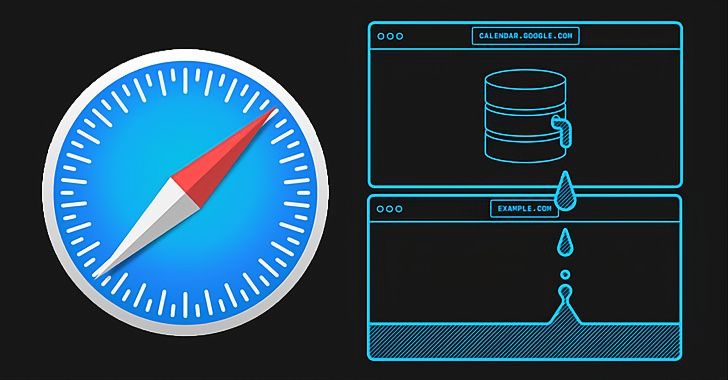A software bug introduced in Apple Safari 15’s implementation of the IndexedDB API could be abused by a malicious website to track users’ online activity in the web browser and worse, even reveal their identity.
The vulnerability, dubbed IndexedDB Leaks, was disclosed by fraud protection software company FingerprintJS, which reported the issue to the iPhone maker on November 28, 2021.
IndexedDB is a low-level JavaScript application programming interface (API) provided by web browsers for managing a NoSQL database of structured data objects such as files and blobs.
“Like most web storage solutions, IndexedDB follows a same-origin policy,” Mozilla notes in its documentation of the API. “So while you can access stored data within a domain, you cannot access data across different domains.”
Same-origin is a fundamental security mechanism that ensures that resources retrieved from distinct origins — i.e., a combination of the scheme (protocol), host (domain), and port number of a URL — are isolated from each other. This effectively means that “https://example[.]com/” and “https://example[.]com/” are not of the same origin because they use different schemes.
By restricting how a script loaded by one origin can interact with a resource from another origin, the idea is to sequester potentially malicious scripts and reduce potential attack vectors by preventing a rogue website from running arbitrary JavaScript code to read data from another domain, say, an email service.
But that’s not the case with how Safari handles the IndexedDB API in Safari across iOS, iPadOS, and macOS.
“In Safari 15 on macOS, and in all browsers on iOS and iPadOS 15, the IndexedDB API is violating the same-origin policy,” Martin Bajanik said in a write-up. “Every time a website interacts with a database, a new (empty) database with the same name is created in all other active frames, tabs, and windows within the same browser session.”
A consequence of this privacy violation is that it allows websites to learn what other websites a user is visiting in different tabs or windows, not to mention precisely identify users on Google services services like YouTube and Google Calendar as these websites create IndexedDB databases that include the authenticated Google User IDs, which is an internal identifier that uniquely identifies a single Google account.
“Not only does this imply that untrusted or malicious websites can learn a user’s identity, but it also allows the linking together of multiple separate accounts used by the same user,” Bajanik said.
To make matters worse, the leakage also affects Private Browsing mode in Safari 15 should a user visit multiple different websites from within the same tab in the browser window. We have reached out to Apple for further comment, and we’ll update the story if we hear back.
“This is a huge bug,” developer advocate for Google Chrome Jake Archibald tweeted. “On OSX, Safari users can (temporarily) switch to another browser to avoid their data leaking across origins. iOS users have no such choice, because Apple imposes a ban on other browser engines.”



